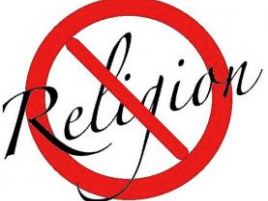‘God Gap’ Impedes U.S. Foreign Policy, Task Force Says
By David Waters | Mar 04, 2010

American foreign policy is handicapped by a narrow, ill-informed and “uncompromising Western secularism” that feeds religious extremism, threatens traditional cultures and fails to encourage religious groups that promote peace and human rights, according to a two-year study by the Chicago Council on Global Affairs.
The council’s 32-member task force, which included former government officials and scholars representing all major faiths, delivered its report to the White House on Tuesday. The report warns of a serious “capabilities gap” and recommends that President Obama make religion “an integral part of our foreign policy.”
Thomas Wright, the council’s executive director of studies, said task force members met Tuesday with Joshua DuBois, head of the White House Office of Faith-Based and Neighborhood Partnerships, and State Department officials. “They were very receptive, and they said that there is a lot of overlap between the task force’s report and the work they have been doing on this same issue,” Wright said.
DuBois declined to comment on the report but wrote on his White House blog Tuesday: “The Office of Faith-based and Neighborhood Partnership and the National Security Staff are working with agencies across government to analyze the ways the U.S. government engages key non-governmental actors, including religious institutions, around the globe.”
ad_icon
The Chicago Council isn’t as influential as the Council on Foreign Relations or some other Washington-based think tanks, but it does have a long-standing relationship with the president. Obama spoke to the council once as a state senator and twice as a U.S. senator, including his first major foreign policy speech as a presidential candidate in April 2007. Michelle Obama is on the council’s board.
American foreign policy’s “God gap” has been noted in recent years by others, including former secretary of state Madeleine K. Albright.
“It’s a hot topic,” said Chris Seiple, president of the Institute for Global Engagement in Arlington County and a Council on Foreign Relations member. “It’s the elephant in the room. You’re taught not to talk about religion and politics, but the bummer is that it’s at the nexus of national security. The truth is the academy has been run by secular fundamentalists for a long time, people who believe religion is not a legitimate component of realpolitik.”
The Chicago Council’s task force was led by R. Scott Appleby of the University of Notre Dame and Richard Cizik of the New Evangelical Partnership for the Common Good. “Religion,” the task force says, “is pivotal to the fate” of such nations as Afghanistan, Pakistan, India, Iraq, Iran, Nigeria and Yemen, all vital to U.S. national and global security.
“Despite a world abuzz with religious fervor,” the task force says, “the U.S. government has been slow to respond effectively to situations where religion plays a global role.” Those include the growing influence of Pentecostalism in Latin America, evangelical Christianity in Africa and religious minorities in the Far East.
U.S. officials have made efforts to address the God gap, especially in dealings with Islamic nations and groups. The CIA established an office of political Islam in the mid-1980s. Congress passed the International Religious Freedom Act in 1998 to make religious freedom a U.S. foreign policy priority. During the second Bush administration, the Defense Department rewrote the Army’s counterinsurgency manual to take account of cultural factors, including religion.
The Obama administration has stepped up the government’s outreach to a wider range of religious groups and individuals overseas, trying to connect with people beyond governments, said a senior administration official who spoke on the condition of anonymity.
The effort, he said, is more deliberate than in the past: “This issue has senior-level attention.”
He noted that Obama appointed a special envoy to the Organization of the Islamic Conference and created a new Muslim outreach position in the State Department. In the past year, he said, embassies in Muslim-majority countries have held hundreds of meetings with a broad range of people not involved in government.
To end the “episodic and uncoordinated nature of U.S. engagement of religion in the world,” the task force recommended:
— Adding religion to the training and continuing education of all foreign service officers, diplomats and other key diplomatic, military and economic officials. That includes using the skills and expertise of military veterans and civilians returning from Iraq and Afghanistan.
— Empowering government departments and agencies to engage local and regional religious communities where they are central players in the promotion of human rights and peace, as well as the delivery of health care and other forms of assistance.
— Address and clarify the role of religious freedom in U.S. foreign policy. Cizik said some parts of the world — the Middle East, China, Russia and India, for example — are particularly sensitive to the U.S. government’s emphasis on religious freedom and see it as a form of imperialism.















